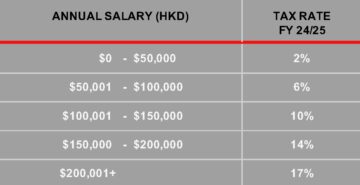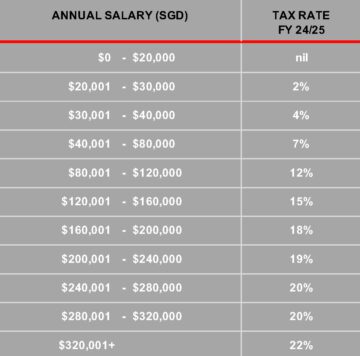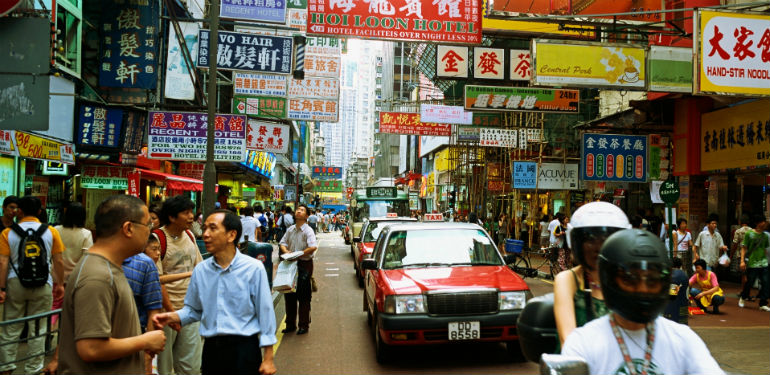Since the start of 2020 the Asia market has endured several challenges such as the Hong Kong protests and the effects of COVID-19. However the continued business growth opportunities in China and South East Asia means this region has a confident job market and we continue to see great career opportunities arise. Here’s what you need to know:
Key learnings:
- This guide provides a comprehensive overview of what to expect when working in the major Asian centres of Hong Kong and Singapore.
- We also recruit into smaller centres (eg Bangkok, Tokyo) although the opportunities come up less often.
- If you’d like to learn more, listen to our podcast on the personal and professional benefits of Working in Asia.
The Asian Job Market
- The largest markets with the most BD & marcomms opportunities are Hong Kong & Singapore. We do recruit into smaller centres (eg Bangkok, Tokyo) though the opportunities come up more rarely.
- We have seen the continuing trend of Singapore becoming a larger hub in the region. This is a steady and organic trend. We have seen some firms purposefully choose Singapore over Hong Kong to place a role. However, there are more instances where a role which would have been based in HK previously, is placed in Singapore due to talent – with more international talent considering relocating to Singapore than HK at this time.
- Some roles will require language skills, however a good proportion of roles we are briefed on do not require this (usually essential for Mainland China based roles).
- The market, team structures and positions within it are not going to be a carbon copy of the current market you work in. Asia has historically been a market for generalists, however over the last few years an increase in sophistication has led to larger teams and more specialist roles (particularly client roles).
- International candidates looking to relocate into Asia are often attractive to firms due to their best practice and market-leading experience.
- Firms expect candidates to commit to permanent roles (as much as anyone can). They are rarely interested in candidates keen to move for a one year stint. There is an expectation you will commit to working in the region for a decent period.
- Moving to Asia offers you the opportunity to develop your skills working cross-culture and cross-border. This is a big adjustment and a steep learning curve for most expat professionals and meeting these challenges is often where job satisfaction is derived.
I want to work in Asia, so what’s next?
The sooner you tell us that you’re considering this, the sooner we can help. You don’t need to wait until you’re certain before getting in touch!
- Search our website for current job opportunities (filter your search by the location(s) you would like to work in).
- Speak to us – we’re always happy to chat and answer your questions.
- Discuss the move with your partner / family and consider what you need to arrange to accommodate them.
- Research – rents, tax, salaries, role types – we can help you here; to figure out if this will work for you.
How will my salary compare?
Check out our salary benchmarks article, which allows you to compare salaries in Australia, Hong Kong and Singapore.
If you need advice beyond what’s available here then get in touch.
Can I expect a relocation package and other benefits?
Each offer will be different from the next and at a firm’s discretion, the most common offers will include the below.
Relocation package
A full relocation package tends to include:
- An economy flight (usually one-way)
- Accommodation in a serviced apartment for the first few weeks (usually 4 weeks)
- A capped amount (often accessible through the provision of receipts) in order to relocate your personal belongings
It is rare for employers to provide flights to relocate a partner and family but this will depend on firm policy and the individual’s circumstances. It’s something we have seen more at a Director level.
Most firms will pose conditions on the relocation package with the most common being:
- a claw back provision if you leave the firm within a specified time frame
- temporary accommodation only being available for the full period offered if you are actively seeking alternate accommodation.
Local contract
Once you’ve relocated to Asia you will be on a local contract as opposed to an ‘expat package’, meaning all expenses are paid and controlled yourself out of your wage.
Annual leave
Firms vary in what they will offer but it is common to receive between 15-22 days annually depending on the firm and level. Our clients almost always ensure an internationally comparable number of days (18-22) for those relocating so they can be competitive. It is worth noting that there are 17 public holidays in Hong Kong and 11 in Singapore.
Health / Dental
Most firms will offer health and dental cover (at a senior level this can sometimes cover your partner as well but this is not always standard).
Bonuses
Some firms pay salary on a 13 month basis (ie you get a guaranteed additional month). Other firms offer a discretionary bonus – performance based any at different firms anything 0.5-4 months’ bonus (1-2 months is most common). Some firms work on a 13 month bonus and a discretionary bonus. It’s important to understand this at the start (we can help you when applying for roles) so that you are not surprised by the annual outcome at the end.
Saturdays
Some employment contracts will include the provision to work on Saturdays as standard wording. However, at the majority of firms Seldon Rosser works with in Hong Kong and Singapore, this would be an occasional occurrence (as with anywhere in the world). The wording in the contracts is a legacy point.
Maternity leave
This will be a firm policy and so will not be covered in your paperwork. By law, employers in Hong Kong are required to provide 10 weeks’ paid maternity leave to employees who have been employed for 40 weeks. In Singapore, an eligible employee is entitled to be absent for four weeks immediately before and 12 weeks immediately after having a baby, totaling 16 weeks. However, policies will vary firm to firm. In recent years we have seen more professionals taking 6 months off for maternity leave (negotiated independently at the time).
For more information:
Hong Kong maternity leave information
Singapore maternity leave information
Will my employer provide a visa?
Hong Kong
It remains commonplace when we are briefed for firms to be interested in a shortlist of candidates from the Greater China region and internationally. It is still a market that is reasonably easy for international professionals to look at.
A dependant visa will enable your spouse and children to study or work while in Hong Kong. This dependant visa is granted for the same period as your work visa.
Singapore
In recent years more restrictions have been imposed by the Ministry of Manpower requiring a certain ration of expat to Singaporeans in any business, and, requirements to look locally first before extending the search for talent to expats. However, it is our experience that the talent pool in Singapore is very limited and as long as the firm meets process criteria and advertises locally, many are still hiring international talent and offering Visas.
SG Employment Pass holder and S Pass holders with a fixed monthly salary of at least $4,000 is eligible to apply for Dependant’s Passes for your spouse and unmarried children under 21 years of age.
Once you have secured a role
Your new employer will manage the application process for you. Once you formally accept the offer, the firm will contact you directly with the application forms.
The application process
This will usually take 4-6 weeks though can take longer – after which you can apply for a dependent visa for your spouse and children (under 18 for HK or under 21 for Singapore).
For more information:
Visa information for Hong Kong: Admission Scheme
Visa information for Singapore: Employment Pass
How does the pension / super work?
In our experience, most expats continue with their individual retirement strategies in their home country rather than rely on local funds. However, we have included some information about the local funds below. Obtaining professional advice is highly recommended.
Mandatory Provision Fund (MPF) – Hong Kong
- Everyone working in Hong Kong (earning HKD7,100 per month or more) has to participate in the Mandatory Provision Fund (MPF) scheme except for expats who reside in Hong Kong for the purpose of employment, providing: their employment is less than 12 months; or, they are/have been covered by a retirement scheme outside of Hong Kong.
- Mandatory contribution is 5% of monthly relevant income up to HKD30,000 per month (i.e. capped at HKD1,500 per month each from the employee which is matched by the employer).
For more information:
Hong Kong MPF Scheme information
Supplementary Retirement Scheme (SRS) – Singapore
- The Supplementary Retirement Scheme (SRS) is a voluntary scheme to encourage individuals to save for retirement.
- The SRS offers attractive tax benefits. Contributions to SRS are eligible for tax relief. Investment returns are tax-free before withdrawal and only 50% of the withdrawals from SRS are taxable at retirement.
- You may withdraw funds from your SRS account at any time in the form of cash or investments. However depending on the time of withdrawal, you will be taxed* on the sum amount withdrawn and may also incur a 5% penalty fee for early withdrawals.
For more information:
Singapore SRS scheme information
Can you tell me about the tax rate?
The lower tax brackets compared to many other parts of the world is part of what can make moving to Asia financially attractive.
Hong Kong
- Salaries tax in Hong Kong is determined on a sliding scale according to a taxpayer’s net chargeable income. And the below rates are used but will not in total exceed the standard rate of 15% – the maximum tax you will therefore pay.
- Many firms also attribute some of your offered salary to “housing allowance” making this portion of your salary (ie what you pay for rent) something you can slice off before calculating tax.

- The year of assessment is 1 April – 31 March.
- Tax is not deducted at source and people must save and pay their annual salaries tax themselves.
- Hong Kong follows a territorial principle and individuals are taxed only on income that has been earned in Hong Kong.
- There is no capital gains tax, no dividend tax and no inheritance tax in Hong Kong.
For more information:
Hong Kong employee tax obligations
Singapore
- The amount of income tax that you have to pay depends on your tax residency in Singapore.
- Income is assessed on a preceding year basis, ending 31 December. You must file your income tax return by 15 April of the following year. You can usually expect to receive the income tax bills by September.
- Top marginal resident tax rate of 22% kicks in at SG$320,000 of taxable income. Non-residents are taxed at the flat rate of 15%, or, the resident rates whichever results in a higher tax amount on your employment income.

This is general information and it is advised that you should seek professional advice in both the city you are relocating to and your home jurisdiction as usually tax returns must be filed in both places.
For more information:
Singapore general tax information
Singapore individual tax rates
Singapore tax requirements and dates
Can you tell me about renting?
The rental market and prices in Asia usually mean that your rent is a reasonably high percentage of your salary. It is good to remember that other costs will be lower to what you’re used to. It is good to do some research as you think about the move to look at the sorts of area people live and the properties available.
As part of this you might do some broader research about what it’s like to work in HK / Singapore on many of the useful expat sites available.
For more information:
Hong King expat arrivals information for renting
Singapore expat arrivals information for renting
Interested in working in Asia? Talk to us or search for jobs in Asia (hint: filter by the country you want to work in).
Related content:
- Working in Asia podcast (30 mins)
- Singapore Market Update – October 2017
- Australia guide
